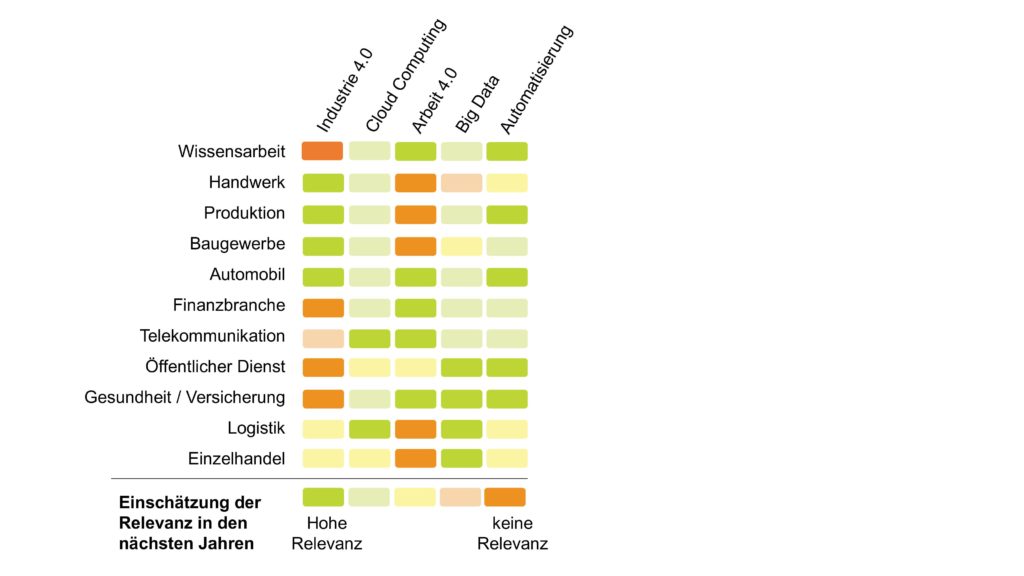Digitization can now be found everywhere and is spreading like wildfire.
I am therefore now writing a whole series of articles on the subject of digitization. My motivation behind this is that digitization means something different for every industry and type of company and I want to work out these differences. An illustration of the differences in different industries can be found in the following figure.

In this section I would like to go into the actual core of this article and illustrate digitization in knowledge work.
Industry characteristics
Knowledge workers still play a crucial role for their employers, because knowledge is still traded as one of the most valuable resources of mankind. While knowledge work has so far primarily relied on the ability to think and act of the “human” worker, this industry is now also subject to a clear change and is increasingly tending towards work 4.0. In the past, agility and digitization were usually only intervened to support the worker himself, while he was still in full control. However, the digital changes in knowledge work in recent years and decades are increasingly tending towards fully automated work in the form of machines and robots.
The current digitization in knowledge work
The increasing digitization of all areas of life is increasingly calling on companies to provide their employees with technological support in the workplace. As a result, the workforce can increasingly decide for themselves which form of IT they want to use during their work. This gives employees the chance of more autonomy and free work in the workplace, but at the same time puts companies under pressure to release the control lever.
But more and more companies are also investing in the direction of completely independent processes. Many companies are already relying on the substitution of workers by machines and are increasingly digitizing their processes. Tendency for the future? – increasing!
Advantages of digitization in knowledge work
The distribution of information offers a promising basis for various forms of digital automation. With the help of digitization in knowledge work, intellectual activities will also be made much more accessible to others in the future. This is possible by making the knowledge of experts tangible and objectified through various media forms. Thus it is accessible to everyone. Information is thus materialized, which is then used as a basis for processes based on the division of labor. Building on this, companies expect new innovation potential and increased efficiency in their employees and processes from digitization in knowledge work.
Tip:
If you are as excited about this topic as I am, then you can find the entire article series here !
Image source: pixabay.com
[fotolia]


